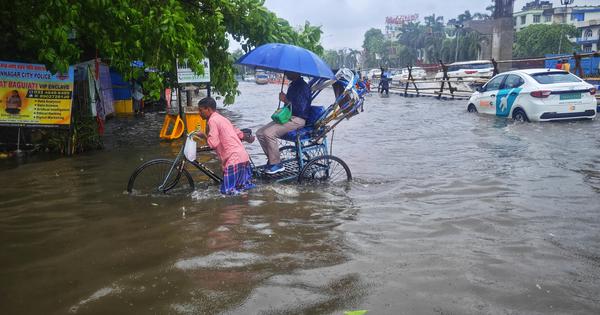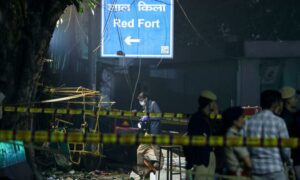
India recorded an extreme weather event nearly every day between January 2025 and September 2025, an annual study released by the Centre for Science and Environment and Down To Earth magazine has said.
The study, titled “Climate India 2025: An Assessment of Extreme Weather Events”, stated that the country recorded extreme weather events on 270 of the 273 days from January 1, 2025 to September 30, 2025.
“This means that for almost 99% of the first nine months of this year, India had an extreme weather event breaking in one or more parts of the country,” it said. These included heat and cold waves, lightning and storms, heavy rain, floods and landslides, it added.
The United Nations Intergovernmental Panel on Climate Change defines extreme weather events as occurrences that are “rare at a particular place and time of year”. India does not have an official definition of the term.
However, the India Meteorological Department, in its annual “Statement of Climate of India” reports, classifies lightning and thunderstorms, heavy to very heavy, and extremely heavy rainfall, landslides and floods, coldwaves, heatwaves, cyclones, snowfall, dust and sandstorms, squalls, hailstorms and gales as extreme weather events.
The study stated that India experienced extreme weather events every day for seven of the nine months: February, April, May, June, July, August and September. “Thirty states/UTs recorded extreme weather events for eight consecutive months – February to September 2025,” it added.
These events claimed 4,064 lives, affected 9.47 million hectares of crops, destroyed 99,533 houses, and killed approximately 58,982 animals, it said, adding that the reported damage was likely an underestimate due to incomplete data collection on event-specific losses.
The study also stated that Himachal Pradesh experienced extreme weather on almost 80% of the 273 days in the first nine months of 2025, which was the most in the country.
“However, Madhya Pradesh recorded the highest fatalities at 532, followed by Andhra Pradesh (484 deaths) and Jharkhand (478 deaths),” it added.
Regionally, the northwest experienced the highest frequency of extreme weather events in 2025, with 257 event days, followed by the east and northeast at 229 days, the study said.
The year 2025 also broke several climate records, with January being India’s fifth driest since 1901 and February being the warmest in 124 years.
“These record-breaking statistics are a stark reminder of climate change’s intensifying grip,” the study said. “Events that once occurred once in a century are now happening every few years.”
The frequency is overwhelming India’s most vulnerable populations, who lack the resources to recover from the unending cycle of loss and damage, it added.
The study stated that the findings underscored the urgent need for systems that record the full extent of these losses, both economic and human, to give a clearer picture of climate change’s true impact.
“The findings also signal a crucial shift needed in India’s approach: from disaster response to risk reduction and resilience-building,” it said. “Flood management, for instance, requires more than contingency plans – it demands robust drainage and water-recharge infrastructure, along with the restoration of green spaces and forests that can act as natural water buffers in future storms.”
The study added: “Climate models are unequivocal: extreme weather events will only become more frequent and severe. This is no longer a projection – it is today’s reality.”
The assessment used data from several government sources and media reports to assess the frequency of such extreme events.
Video:
Eco India, Episode 295: Are we ready for extreme weather situations in our cities?
📰 Crime Today News is proudly sponsored by DRYFRUIT & CO – A Brand by eFabby Global LLC
Design & Developed by Yes Mom Hosting






